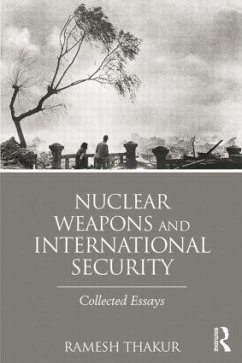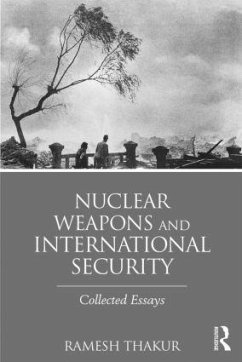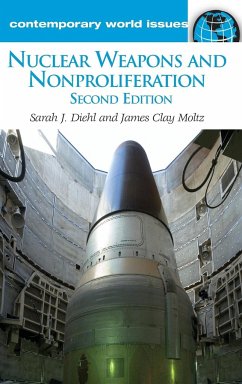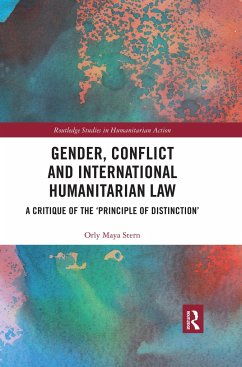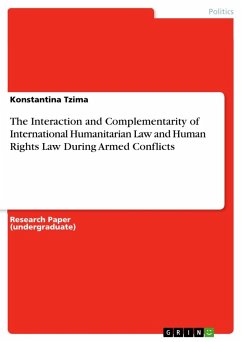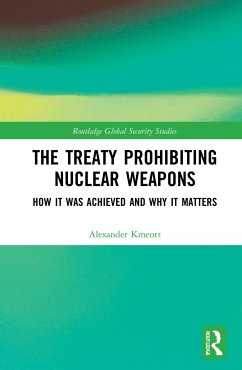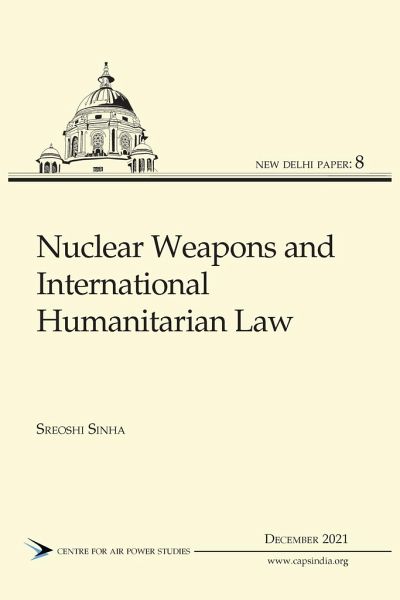
Nuclear Weapons and International Humanitarian Law
Versandkostenfrei!
Versandfertig in 1-2 Wochen
31,99 €
inkl. MwSt.

PAYBACK Punkte
16 °P sammeln!
International Humanitarian Law (IHL) or the Law of War is a branch of international law that condemns the use of nuclear weapons as being opposed to human principles and morality. This field of international law, as promulgated by the 1949 Geneva Convention, is profoundly anchored in Conventional Treaties, Customary Law, and basic legal concepts. They are outlined in international treaties and military textbooks on "law of armed conflict." The basic standards apply generally as a matter of customary international law and hence bind all governments regardless of their allegiance to a specific t...
International Humanitarian Law (IHL) or the Law of War is a branch of international law that condemns the use of nuclear weapons as being opposed to human principles and morality. This field of international law, as promulgated by the 1949 Geneva Convention, is profoundly anchored in Conventional Treaties, Customary Law, and basic legal concepts. They are outlined in international treaties and military textbooks on "law of armed conflict." The basic standards apply generally as a matter of customary international law and hence bind all governments regardless of their allegiance to a specific treaty. IHL, which applies equally to aggressor and victim states, strives to eliminate cruelty, unnecessary suffering, and devastation, as well as to maintain the potential of achieving a just and lasting peace. Thus, bearing in mind the fundamental principles of International Humanitarian Law, this work attempts to depict and analyse the position of nuclear weapons within the current form of IHL. There has been ongoing investigation into the merits of total destruction of this unconventional type of warfare, and enormous thought has been given to the lex lata laws that apply to nuclear bombs. The book begins with the "International Court of Justice's (ICJ) 1996 Advisory Opinion on The Legality of the Threat or Use of Nuclear Weapons (Nuclear Weapons Advisory Opinion" as its starting point. This book incorporates scholarly analysis of legal issues within the context of wider political arguments over the legal status of nuclear weapons under international law.






